
Yogurt Plus – Made with Raw Milk
Yogurt Plus and its Benefits
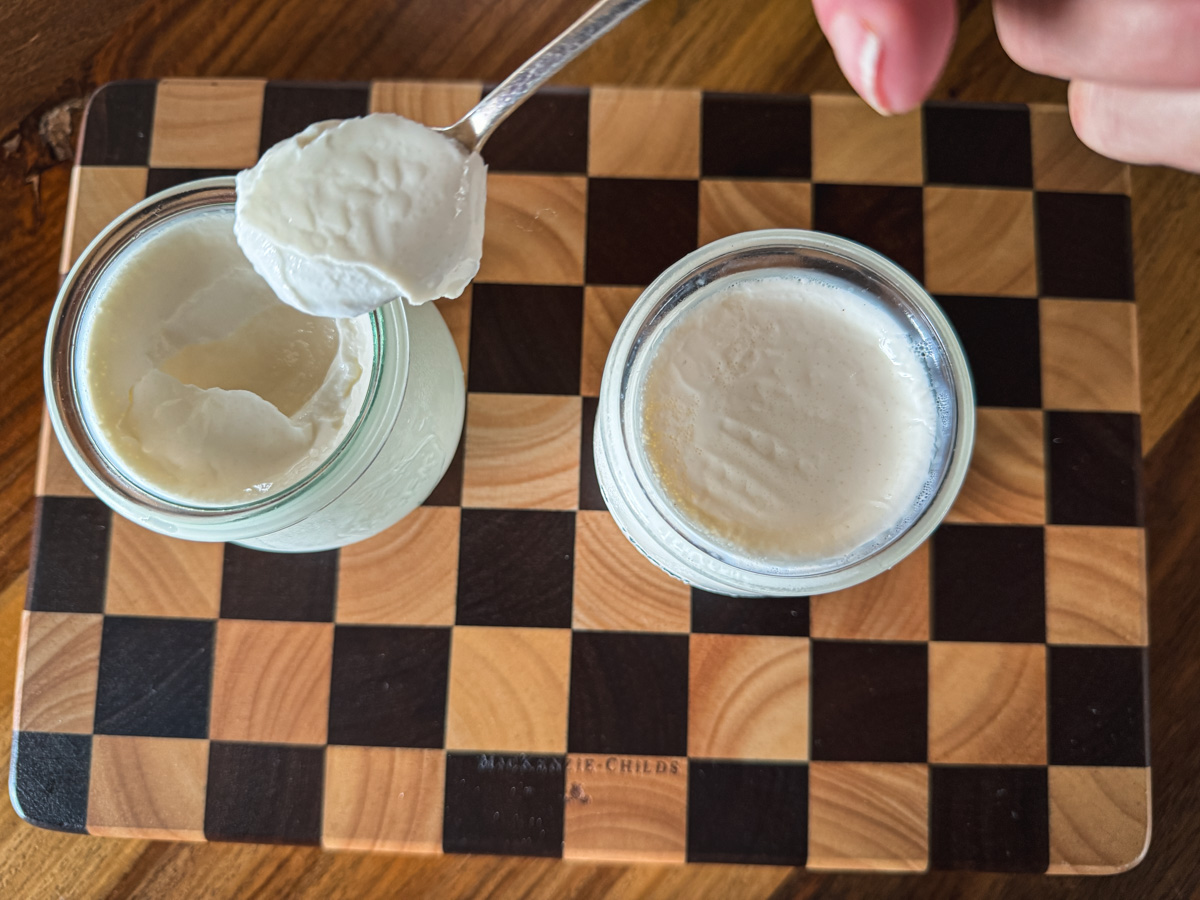
Yogurt Plus is a wonderful and easy yogurt to make on a regular basis. I can't wait to share the recipe and video. 🎥 Everybody knows I love kefir with every fiber of my being and have it constantly, but there were bacterial strains that kefir didn't have that I wanted. Bifidobacteria is a strain that I think we need in abundance that isn't in kefir, but what's interesting is kefir helps to feed this strain if you have it. Let's talk about this strain and why it's so important.
Bifidobacteria have long been regarded as one of the most beneficial members of the human gut microbiome. Lower levels of this beneficial bacteria have been shown in obese and diabetic individuals and in individuals taking antibiotics. Also, those suffering from irritable bowel syndrome or inflammatory bowel disease have shown lower levels of bifidobacteria as well. [1]
Raw Milk
I love raw milk cheeses and yogurts, and I was excited to discover you can make Yogurt Plus with raw milk. I have been drinking raw milk for over twenty-three years. Throughout my life, I have witnessed that many foods once deemed to be super healthy are now being deemed bad for you - and dairy is one of them. Often, it is not the food; it's what we have done to the food and what we have done to our guts that is the problem. Since so many people have stopped drinking dairy, their bodies stopped producing the enzyme lactase that helps them digest it. The enzyme lactase breaks down milk sugar (lactose). Lactase enzymes are found in the lining of the small intestine. They change the milk sugar into absorbable compounds – glucose and galactose. If your body does not produce enough lactase, lactose is not digested and absorbed in the small intestine in the usual way.
There are a few things to know before you try making yogurt with raw milk. I can help you get the benefits of raw milk and yogurt which will help to build up your immune system and keep you strong. Plus, you will get vitamin C and extra B vitamins from raw milk that you otherwise wouldn't if you used pasteurized milk.
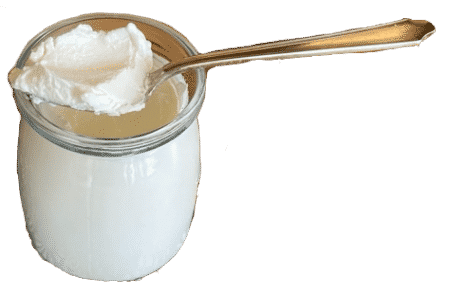 Don't use raw milk to make L. reuteri and L. gasseri yogurt; these yogurts are fermented for 36 hours and need to have the lactoglobulin denatured, which pasteurization does. If you want to use raw milk, heat it to 190°F and cool it down before adding the culture.
Don't use raw milk to make L. reuteri and L. gasseri yogurt; these yogurts are fermented for 36 hours and need to have the lactoglobulin denatured, which pasteurization does. If you want to use raw milk, heat it to 190°F and cool it down before adding the culture.
Tips on Making Raw Milk Yogurt
Forming a Thick Curd
When you are using raw milk to make yogurt it needs a little help. Raw milk won't form a thick curd due to the lactoglobulin in the milk. This is why most yogurts are made with ultra-pasturized milk. Milk that is ultra pasteurized will denature the lactoglobulin, but since you don't want to heat raw milk and remove some of the benefits, you will need to add some milk powder to help thicken the yogurt; otherwise, it will be runny. You can also add about 2½ teaspoons of gelatin, but I like the texture of yogurt made with powdered milk.
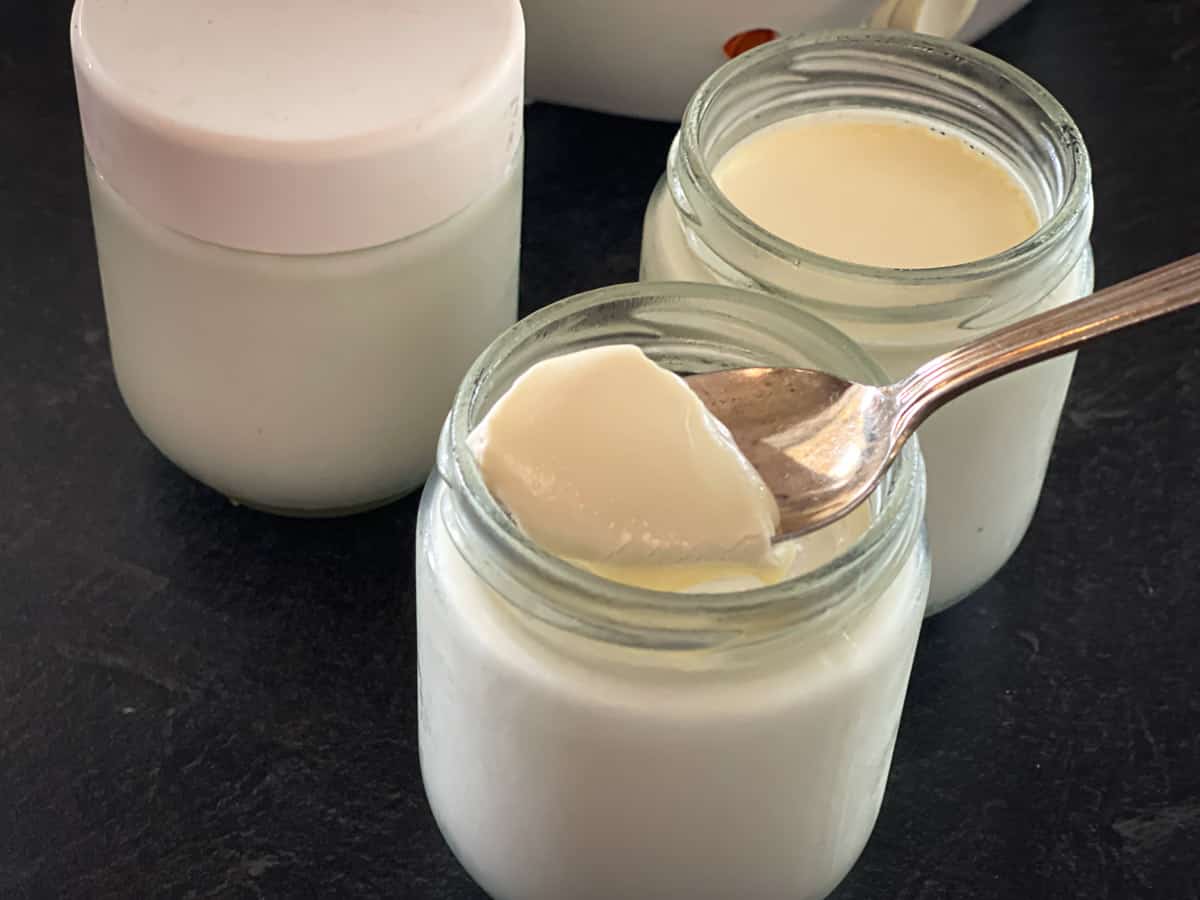
Temperature and Length of Time
Temperature is really important to allow the curd to form. 110° F is the best temperature to make this yogurt. If the temperature is lower, you risk it not making a thick curd. Temperatures above 118°F will kill the benefits in the raw milk so 110°F is the best temperature.
Length of fermentation time is really important as well. It can be done in as little as 7 hours, but I like to let it go to 10 hours. If yours isn't forming a curd, then let it keep fermenting until it does. It will firm up more once it is placed in the fridge.
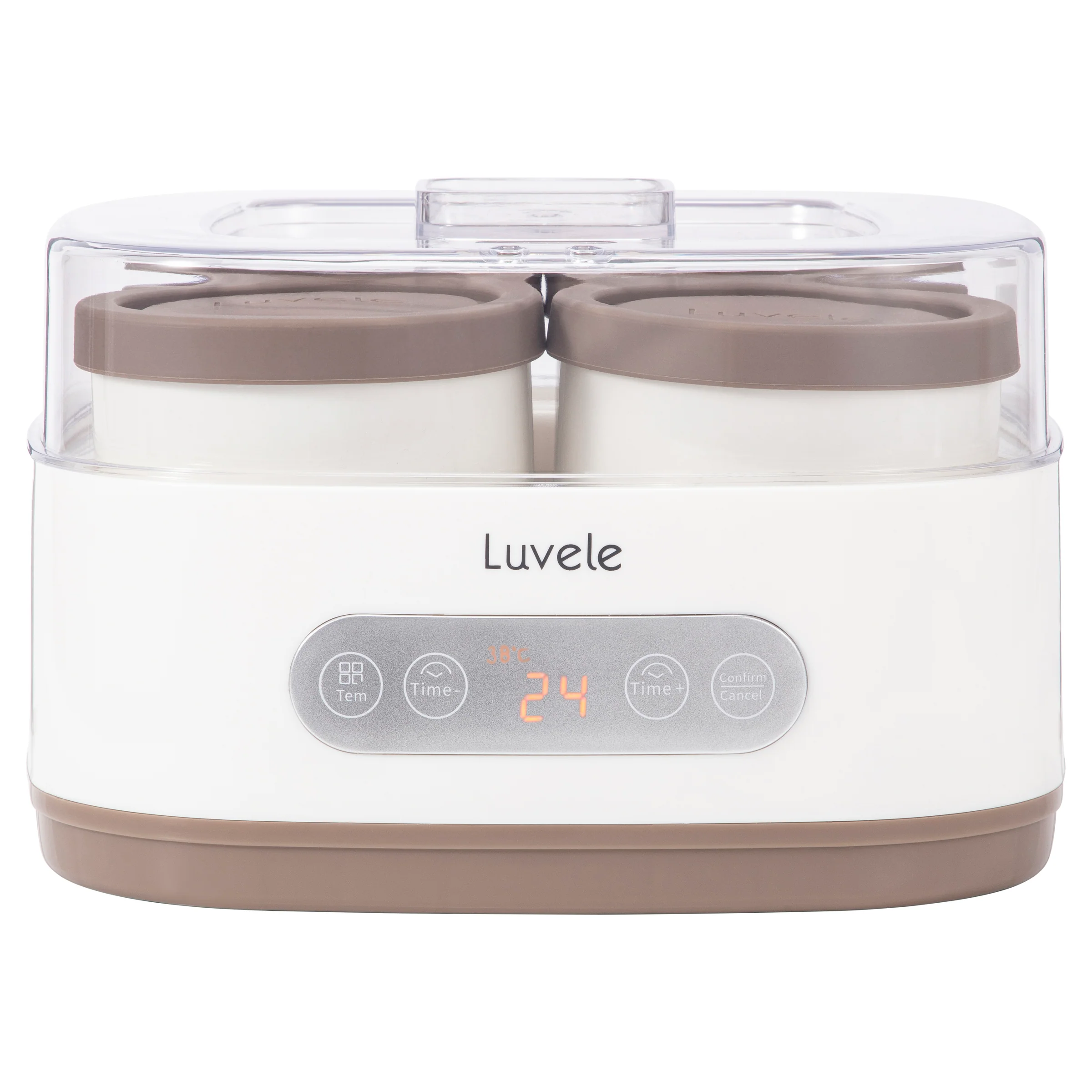
Cream on the Top
Raw milk has the cream that rises to the top since it isn't homogenized. When you are making raw milk yogurt, the fermented cream (since it doesn't have as much lactose) will get a more yeasty taste. This is just the cream part - the yogurt underneath will be sour and tart. You can remove the cream if you don't want this taste, but it is still good and can always be sweetened if you like.
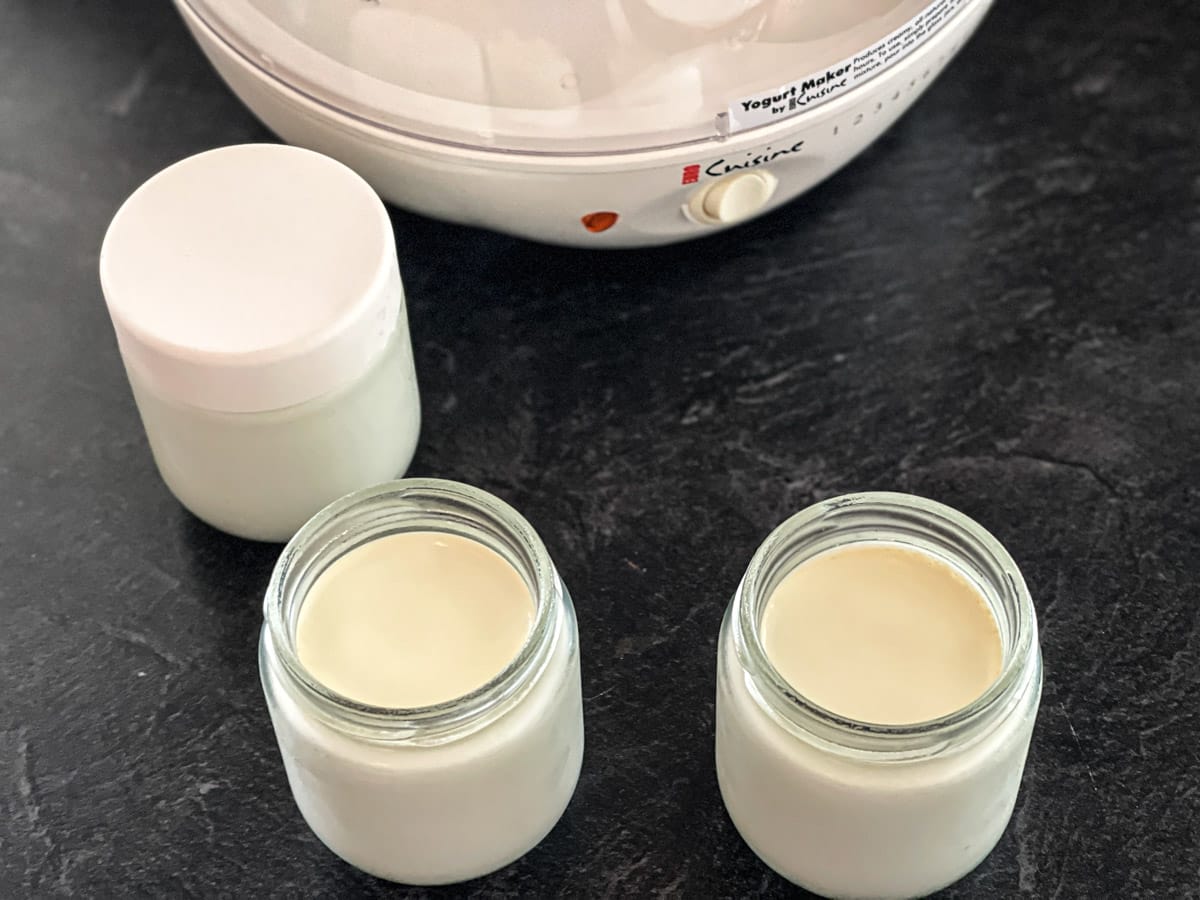
Get Your Starter
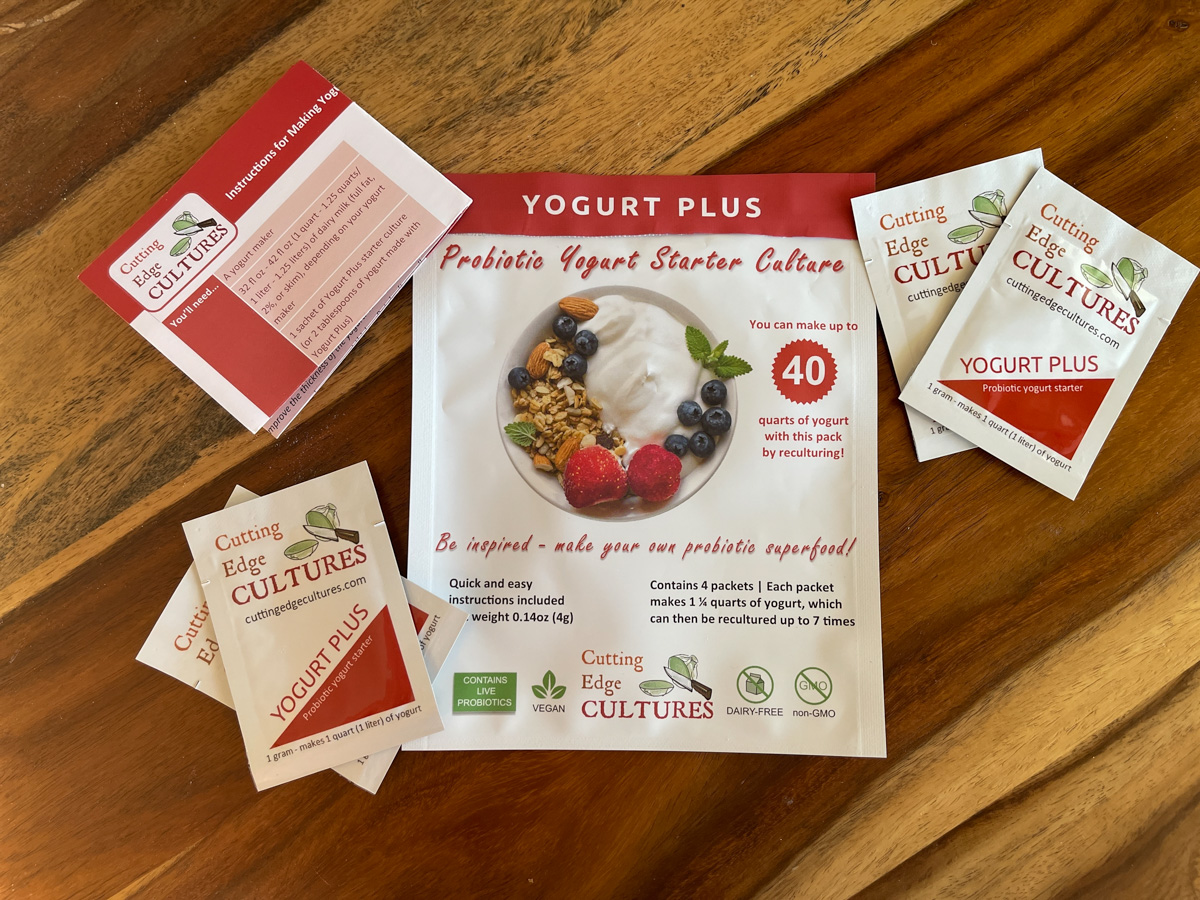
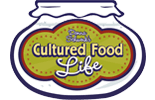
You can use lots of starters to make raw milk yogurt. You can even use store-bought yogurts as a starter. Two tablespoons as a starter for the yogurt will work. More is not better; stick to two tablespoons, as bacteria do not like to be crowded. To get lots of bifido and other strains, check out our Yogurt Plus starter.
Raw Milk Yogurt Video & Recipe
Raw Milk Yogurt Plus
Watch The Video
Equipment
- Luvele Yogurt Maker or Instapot with yogurt setting or a Sous vide device will work too.
Ingredients
- 42 ounces raw milk
- 7 tablespoons powdered milk - helps the milk to thicken
- 1 Sachet Yogurt Plus Starter - or 2 tablespoons of a previously made yogurt
Every ingredient with a link was selected by me to make it easier for you. I may receive a small affiliate commission if you buy something through my links. Thank you! ❤️
Instructions
- Place raw milk in a medium saucepan.
- Whisk in powdered milk and heat raw milk over medium-low heat to 110°F, whisking or stirring constantly. Make sure it doesn't get above 118°F so it doesn't kill the enzymes and vitamins in the raw milk.
- Once the temperature is reached, remove from heat and whisk in the yogurt starter. This spreads the good bacteria throughout all the milk.
- Place milk in yogurt jars without lids and incubate in your yogurt maker at 110°F for 8-12 hours or until a curd forms.
- Place the jars in the fridge to cool and set. Cool the yogurt in the refrigerator for a couple of hours. As the yogurt cools, it will get even thicker!
Reculturing
- To make a new batch, repeat these instructions above but use 2 tablespoons of the pre-made yogurt you made as your starter.
Notes

Listen To My Podcast
Raw milk yogurt is one of my very favorite yogurts. You need to understand a few tips and tricks to make raw milk turn into yogurt. I have lots of help and even a video. Tune in to learn more.
References I talked about:
Are you on the list?
Sign up today and I'll send you my free Getting Started Guide!
Each week I'll send you updates, tips, recipes, and more! You might even be a winner of my weekly giveaway! (starter cultures, memberships, and more!)
Come be a part of my cultured food family!


